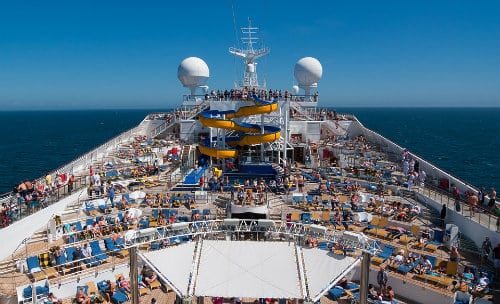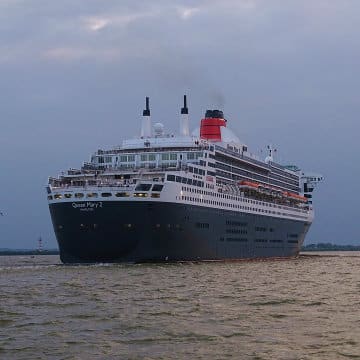If you’ve been injured while working on a cruise ship, you may be wondering what to do next:
Our maritime work injury lawyers can help answer your concerns after suffering a cruise ship work injury.
Cruise ship getaways have become one of the most popular vacation choices for American families. In order to keep these cruises safe and operating smoothly, a variety of crew members must work together, both behind the scenes and in the service of passengers. Working on a cruise ship comes with a variety of occupational risks, which can result in serious injuries. In many cases, cruise ship work injuries could have been prevented if it weren’t for the negligence of an employer, fellow crew member, or third party.
When a cruise ship worker gets injured on the job, several different forms of maritime law may apply. Most crew members qualify as a “seaman” under the Jones Act, which allows injured employees to hold their employers liable for damages if negligence contributed to a work injury. Additionally, injured cruise ship workers also qualify for “maintenance and cure” benefits, which provide compensation similar to workers’ comp. In some cases, injured workers may have the option to file a personal injury lawsuit against third parties who caused their injuries through some form of negligence.
Find helpful information here: https://legalherald.com/offshore-injury/jones-act/
If you spend more than 30% of your work hours on board a ship or directly contributing to the operation of a ship, you’re likely eligible to file a Jones Act claim. This includes virtually all types of cruise ship employees, including:
Determining if you qualify for a Jones Act claim depends on a variety of specific circumstances. It may be helpful to have your case reviewed by a lawyer with experience in maritime law.
In order to file a Jones Act claim, you must prove that some form of negligence contributed to your work injury. This includes mistakes from your co-workers, negligence from your employer (such as failing to follow safety rules), and shipowner negligence (such as failing to keep the vessel safe for travel).
Unlike personal injury lawsuits, you don’t need to prove that this negligence was the main cause of your injury. You only must establish that negligence contributed in some way to your injury.
Workers covered under the Jones Act are also eligible for “maintenance and cure” benefits, which are available even if cases that don’t involve negligence. These benefits provide financial assistance for medical expenses and daily living expenses while a cruise ship employee is unable to return to work
Cruise ships that are well-maintained and properly staffed are generally safe, but not every cruise ship line prioritizes safety the way they should. This can lead to injuries both to cruise ship workers and passengers. In either case, it’s important to ask how the injury could have been prevented.
Common cruise ship injuries include:
If you’ve recently suffered an injury or illness related to your work conditions, it’s important to explore your legal options. Regardless of the nature of your injury, you should at least be entitled to maintenance and cure benefits. Depending on the circumstances, you may also be able to seek additional financial compensation from negligent parties who contributed to your injury.
Negligence can take many forms. Essentially, if your employer in any way failed to keep your work environment free of dangers which could cause an injury, he or she may be considered negligent. Cruise ship employers can also be held liable when an employee’s negligence contributes to a work injury.
Common examples of negligence that could contribute to cruise ship work accidents and injuries include:
Negligence in cruise ship work injury claims is highly specific depending on the circumstances behind your injury. These are just a few examples of the most common forms, but any injury which occurred due to a foreseeable danger generally qualifies for a Jones Act claim under negligence.
While you’re free to seek financial compensation on your own, most injured cruise ship workers require the assistance of a maritime work injury lawyer. This system is much more complex than a standard workers’ compensation claim, and different workers may be eligible for financial compensation under different maritime laws.
Additionally, cruise ship lines are powerful companies that have skilled lawyers who specialize in avoiding liability. In order to get through this complex legal process, it’s often necessary to have your own legal counsel who has the experience and knowledge necessary to take on these powerful entities.
To find out more about your options after being injured while working on a cruise ship, contact us today and schedule a free consultation with an experienced maritime work injury lawyer.
Continue Reading: Maritime Lawyers Representing Injured Rhode Island Offshore Workers


 info@legalherald.com
info@legalherald.com